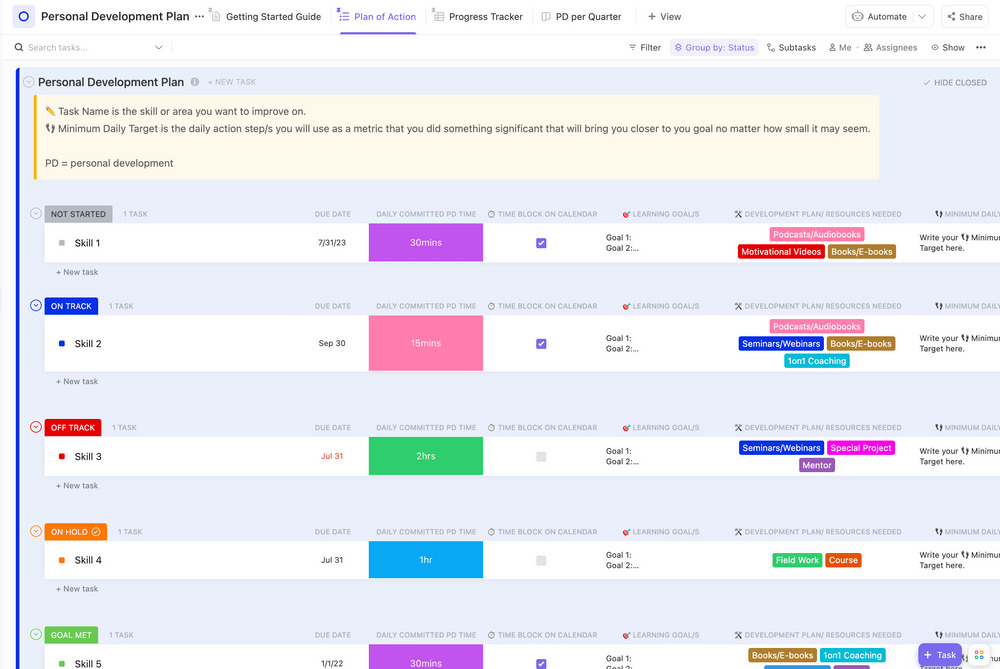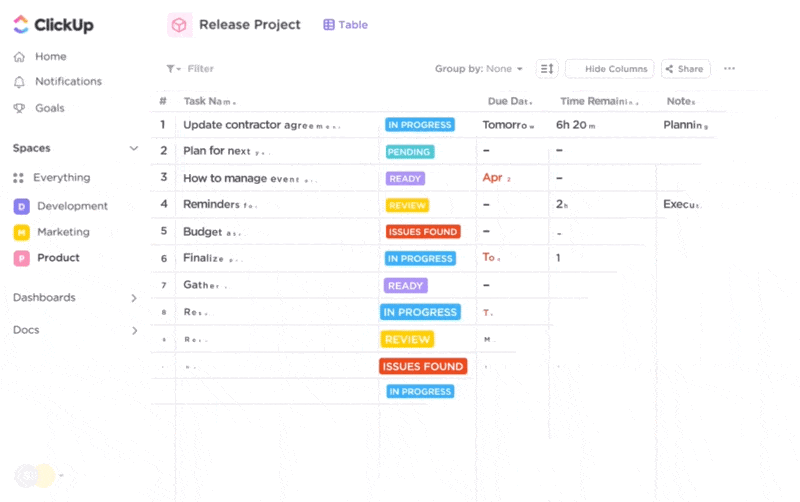10 Best Growth Hacking Books to Scale Your Business

Sorry, there were no results found for “”
Sorry, there were no results found for “”
Sorry, there were no results found for “”
Have social media influencers convinced you can hack your way to overnight business success? Have you been told repeatedly that growth hacking is the solution to all your woes?
We’re sorry to disappoint!
Growth hacking is neither a silver bullet nor just another buzzword. It’s a combination of cost-effective strategies and tactics that some of the biggest companies in the world have used to achieve rapid yet sustainable growth.
For example, Airbnb grew exponentially by harnessing Craigslist’s network effects and user base in its early stages. Today, they are valued at a staggering $80 billion!
The good news? You can do it too! Dan Martell, founder of the on-demand expert startup advice service Clarity, believes, “Growth hacking is a mindset more than a toolset.”
We’ve got 10 growth hacking book recommendations that will help you adopt this perspective to scale your business and achieve exponential growth. 📚

In Growth Hacker Marketing, Ryan Holiday uses examples of some of the best contemporary products, such as Dropbox, Facebook, and Instagram, to break traditional stereotypes on how to market products.
For instance, selling to a small group of targeted early adopters instead of marketing to everyone worked wonders for Dropbox. Their demo video specifically targeted the Digg community, who they knew would be the right audience for their product. Their bet paid off, and within 24 hours, their waiting list went from 5,000 to 75,000 people!
This book is replete with novel ideas and tactics for growth hackers. If you want to understand the power of an MVP, aka the Minimum Viable Product, or find the right match between your product and what the market wants, this book is a game-changer.
Holiday is all for using data to guide your decisions: try stuff out, see what works, and keep tweaking. He also hypes the idea that getting people to talk about your product (virality and word of mouth) is a major key to success.
Growth Hacker Marketing is a roadmap for anyone wanting to grow fast in the wild world of digital marketing—it’s one of the best growth hacking books out there.

If you’re creating products, Hooked: How to Build Habit-Forming Products by Nir Eyal is a must-read. This growth hacking book spills the secrets of how to make products that stick, based on insights from psychology. 🧠
Eyal breaks down the creation of habit-forming products into four steps:
In short, the book encourages critical thinking, is thoroughly researched and fact-based and shows you how to create something that will keep users coming back for more.

Ever yearned for a roadmap to launch a successful startup? Forget complicated theories and lean on Lean Analytics by Alistair Croll and Benjamin Yoskovitz.
1-line summary: Learn how to use your data to take your startup from idea to product-market fit and beyond.
The writers introduce the idea of ‘lean analytics,’ or focusing on the One Metric That Matters for your business. 🥇
By doing so, you can solve every startup’s biggest issues: validating the problem, finding the right customers, and deciding what to build and how to monetize it.
Written by Alistair Croll (Coradiant, CloudOps, Startupfest) and Ben Yoskovitz (Year One Labs, GoInstant), the book lays out practical, proven steps to take your startup from initial idea to product/market fit and beyond.
Packed with over 30 case studies, and based on a year of interviews with over a hundred founders and investors, this is one of the rare growth hacking books that is an invaluable, practical guide for Lean Startup practitioners everywhere.

What makes Hacking Growth the mother of growth hacking books is that the content comes straight from Sean Ellis, who coined the term growth hacking!
Together with Morgan Brown, he dives deep into stories of how some of the most profitable companies reached the top. Think Airbnb, Facebook, LinkedIn, and Uber.
It’s not just theories; the book also outlines a step-by-step growth plan. It covers tried and tested methods and processes for each of the four growth stages: acquisition, activation, retention, and monetization).
By reading this book, you’ll understand everything from spotting rapid growth opportunities to using data to making users more sticky to keep them around.

All our lives, we’ve been told to play by the rules. What happens when you break them? “Shortcut” is often thought of as a dirty word.
In Smartcuts, Shane Snow flips the script on the idea that success has to be slow and steady.
The book showcases stories of people who didn’t follow the “traditional” path and still managed to achieve success. Snow breaks down their strategies, emphasizing the power of ‘lateral thinking’—finding creative and non-linear ways to overcome challenges and reach goals faster.
He also shares some overlooked tips for accelerating growth, including finding a mentor to work with and aiming for 10x improvements instead of incremental changes.
Whether you’re aiming for career growth, innovation, or business success, Smartcuts is a growth-hacking book that encourages you to constantly question the usual advice and chart a part of your own. It’s about working smarter, not just harder, and taking calculated risks to speed up your journey to success.

Tired of reading long management books that are dry and jargon-y? 🥱
Reviews claim Wes Bush’s book is ‘as captivating as a good novel.’ It’s short, simple, and coherent in explaining an important aspect of business—forgetting the old-school ways of selling.
Bush himself is an authority on product-led growth, as the co-host of the ‘Product-led podcast’ and the creator of the ‘Product-led 6-week course’.
He is an expert at breaking down product-led growth in a way that’s easy to get: your product isn’t just something you sell; it’s the star of the show. Rather than sales or marketing, your product drives critical business outcomes.
Bush also offers enough examples to back the strategies mentioned in the book, showing how companies such as Slack, Hotjar, and Dropbox leveraged freemium models, referral incentives, and viral adoption to drive product-led growth.
He also talks about creating a fantastic user experience, smart product design, and building something customers can’t get enough of. If you’re on the hunt for a growth hacking book that’s easy to understand and helps you achieve explosive customer growth, Product-Led Growth is what you need.

Don’t want to read the ‘whats’ of growth hacking and want the ‘hows’ instead?
Get your notepad and pen ready cause you’ll want to take notes. ✏️📔
The Paper Plane Plan provides a step-by-step guide to selecting, implementing, and scaling the most effective growth hacks for B2B service businesses. The book is based on Davies’s first-hand experience running a successful design agency and testing various marketing experiments.
Plus, it takes you behind the scenes of how he grew his business by at least 50% per year for five years using these techniques.
The book is aimed at entrepreneurs, marketers, and business owners who want to grow their service businesses faster and smarter.
Here are some things you’ll learn:
The Paper Plane Plan is suitable for beginners and experts alike as it covers both the basics and advanced growth hacking strategies.

Are you a beginner to the concept of growth hacking? Ready, Set, Growth is a good place to start.
After all, who can be a better growth adviser than someone who raised $120 million by hacking through the startup world?
As an entrepreneur and strategist, Nader Sabry has accumulated extensive experience founding companies, raising money, and mastering growth hacking over the past 25 years.
In this book, he draws from these experiences to teach you how to apply the growth hacking mentality to any organization— a startup, a corporation, or a government body.
Sabry lays out a step-by-step guide to help anyone with little or no knowledge to 10x their organizations’ growth. He helps readers identify their growth challenges, experiment with different growth hacks, and scale them.
He also shows how to use asymmetrical warfare principles to overcome stronger competitors or adversaries. If you need help creating your organization’s right mindset and culture, this is the best growth-hacking book for you.

We’ve all heard how 90% of startups fail. Have you ever thought why?
The answer is in the title of the book Traction, by Gabriel Weinberg and Justin Mares. Yes, startups fail due to lack of traction, that is, their inability to find new customers.
This growth hacking book is an effective guide to startup marketing that is compulsory at many universities. Some claim that it should be on the shelf of every startup founder. Why? Instead of vague theories, the authors give you a solid marketing plan with little chance of failure.
They introduce the “Bullseye Framework”, a step-by-step method to test different marketing channels and determine which drives real results. With 19 channels covered, from traditional marketing to online platforms, Traction is a growth toolkit for startup founders and marketers.
The book also chronicles stories from interviews with founders from successful companies like Reddit, Hubspot, and Wikipedia, highlighting their key strategies for getting customers.
Ultimately, “traction trumps everything”, the authors claim. Growth happens to be all about experimenting, testing, and finding what works best for your business.

Don’t want to drown in debt to market your business? Read this book.
The Startup Growth Book by Andrew Lee Miller teaches entrepreneurs and marketers how to grow their businesses without spending a fortune on paid advertising.
The book covers 50+ proven ways to scale organically using 10 different channels. It explores public relations, search engine optimization, email marketing, social media marketing, influencer marketing, and other techniques that are just as, if not more effective, than shelling out thousands in ad money. 💰💸
Miller’s book is based on his 15 years of experience in handling growth for startups, including five companies that achieved multi-million dollar exits.
The Startup Growth Book is ideal for anyone who wants to learn modern-day techniques from a master of bootstrapped marketing and growth hacking. Miller’s work on this book has made it one of the best growth hacking books around organic growth marketing.
There’s a reason that the startup world is obsessed with growth hacking. It lends companies a distinct competitive advantage and fuels meteoric growth. But simply reading growth hacking books won’t unlock these advantages for your organization.
You need a tool to help you translate this knowledge into practical results and help you achieve your business goals.

As you build and ship products, ClickUp lets you focus on growth without compromising quality. It’s a highly customizable, all-in-one product management platform that helps you streamline all your projects and supports your growth journey like none other.
Here are some of the top ClickUp capabilities for hacking your way to fast yet scalable growth:


Over 800,000 teams of all sizes have scaled growth successfully using the above ClickUp features, including Finastra.
Finastra is the largest pure-play Financial Services software company, serving over eight thousand financial institutions. With a team of 120+ employees handling demand generation and tasked with driving growth for the company, Finastra faced a common challenge—fragmented GTM plans obstructing their visibility and hindering growth.
So what did they do? They partnered up with ClickUp!
The challenge
With GTM plans scattered across different formats and repositories across geographies and business units, Finastra’s marketing team struggled with inconsistent campaigns and a lack of real-time transparency.
They spent hours in meetings, bringing siloed (and, sometimes, outdated) data together to communicate essential updates to stakeholders.
Solutions with ClickUp
ClickUp’s usability, automation, and analytics helped Finastra solve its most pressing challenges, all using a single tool.

Finastra’s collaboration with ClickUp is proving beneficial, as ClickUp’s tools and features are streamlining collaboration, improving efficiency, and providing a consistent approach to GTM strategies across Finastra’s diverse business units.
If you, too, want to hack growth in a practical and proven way, check out ClickUp today!
© 2026 ClickUp